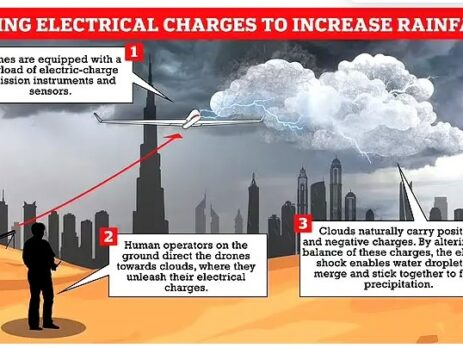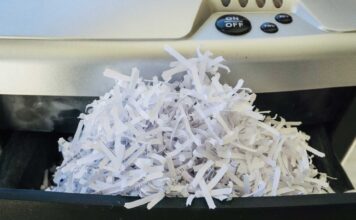Officials in Dubai are using drones to artificially increase rainfall as the city grapples with oppressive heat, a video this week shows.
The rainmaking technology, known as “cloud seeding,” was put into use as summer temperatures have surged past 120 degrees Fahrenheit in the United Arab Emirates city, the Independent reported.
Experts have said the technology aims to make rain form more efficiently inside clouds and in doing so, make more water come down.
Drones are used to shoot electrical charges into clouds, causing them to clump together and trigger more rainfall.
Footage shared on Sunday by the UAE’s National Center of Meteorology showed the intense showers flooding roads in addition to flashes of lightning.
Cloud seeding has been around for some time now and has been employed in India on multiple occasions to mitigate drought.
Explaining the process, Kondala Murali Mohan, a scientist with Krishi Vigyan Kendra (Medak), said: “Cloud seeding is a process to create artificial rain. Here, chemicals like silver iodide, potassium iodide and dry ice are sent to the atmosphere through helicopters or planes. These particles attract the water vapor in the air, leading to the formation of cumulonimbus clouds and finally rain. It generally takes half-an-hour to produce rainfall by this method. The time taken to generate rain depends on which portion of the cloud the chemicals are being injected into. Zapping the top layers gives the fastest results.”
However, these experiments are harmful to the environment. The scientist added: “The method can lead to acidification of the oceans, ozone layer depletion and an increase in the levels of atmospheric carbon dioxide. Silver is a heavy, toxic metal and it harms the health of plants, humans and animals. Cloud seeding is also a costly method. A foot of rainfall costs around $ 200.”
Rainmaking has become common in dry countries such as the United Arab Emirates, which typically only records four inches of rain a year, the Independent reported.













